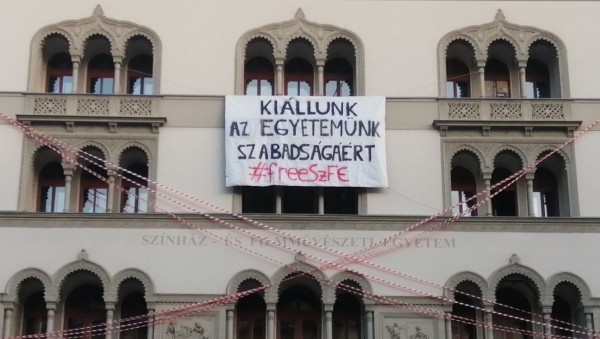The ongoing IRISS project, where the Eötvös Károly Institute is a consortium member, will reconstruct the spread of surveillance systems and technologies in public and private sectors from the perspective of their impact on the fabric of a democratic society. The project will focus on the observable effects and everyday understanding of surveillance in contemporary Europe, analysing differences within and between individual societies and matching the observable effects against the situation in other parts of the world. More on the IRISS website.
Research results of the IRISS project in 2013
The Eötvös Károly Policy Institute has been participating in the research project Increasing Resilience in Surveillance Studies (IRISS) since February 2012, the launch of the project. IRISS is conducted by a consortium of 16 institutions from nine European countries, within the framework of the FP7 programme of the EU. From EKINT Ivan Szekely and Beatrix Vissy is participating in the research; Szonja Navratil also contributed to the work around the launch of the project.
For EKINT the most important events and research results in the year 2013 were the following:
- April 2013, Milano: IRISS Consortium Meeting (I. Szekely and B. Vissy participating)
- May 2013, Budapest: workshop for participants of Work Package 5 (I. Szekely and B. Vissy participating), including a presentation by Ivan Szekely about social and legal characteristics of post-communist countries in the context of data protection
- June 2013, Hamburg: workshop for participants of Work Package 5 (I. Szekely participating)
- October 2013, Vienna: IRISS Consortium Meeting (I. Szekely and B. Vissy participating)
Following intensive theoretical research of 2012 and written results thereof, in this year EKINT researchers had a significant role in three work packages:
WP3 (Case studies): EKINT investigated the impact of surveillance on democratic societies in a specific area: credit scoring, by analyzing its practice and legal framework, collecting practical experience, and by conducting interviews. The Hungarian findings of this research, led by the Open University (UK), resulted in a written research report.
WP5 (Exercising democratic rights under surveillance regimes): This empirical research aims at testing the enforceability of the right to access one’s own personal data. The researchers of the Institute participated in this work, led by the University of Sheffield, in three phases. In the first phase they explored and analyzed the legal regulation of this right in Hungary, in the second phase tested the identifiability and accessibility of data controllers in various data controlling sectors, and in the third phase requested access to their own personal data from a range of data controllers in the state and private sectors, including Hungarian subsidiaries of multinational companies. The findings of the empirical investigations resulted in detailed research reports.
WP6 (Resilience options): This work package examines the capacity of society to bounce back from adverse impacts of surveillance or to develop resilient strategies at individual, group and social levels. EKINT’s researcher analyzed such capacities of dictatorial and post-dictatorial societies in his study.
Among the research results of the year 2013 it deserves noting that the theoretical findings of the research conducted in the first year of the project will be published in an edited volume (Surveillance in Europe, Routledge, forthcoming), in which a chapter is authored by researchers of EKINT.
The IRISS international research project, supported by the EU, has published a handbook on resilience towards surveillance, with the contribution of the Eotvos Karoly Policy Institute (EKINT). Part One of the handbook provides some background on the characteristics and undesirable impacts of surveillance societies; Part Two lays out a set of questions addressed to decision-makers, consultancies, service providers, civil organizations and the general public in order to provoke consideration of proposed or existing surveillance systems, technologies, practices or other initiatives; Part Three offers a list of measures that can be taken to improve the present situation and to minimize adverse impacts of surveillance on the individual, groups and society.
The online version of the Handbook is available on the IRISS project website and downloadable as a PDF file.
Researchers of EKINT and the University of Edinburgh further developed their research started within WP6; a result of this work was a presentation delivered at the bi-annual conference of the Surveillance and Society Network (SSN) in Barcelona, April 2014 (Charles Raab, Richard Jones and Iván Székely, "Taking ‘resilience’ seriously: exploring its implications in the context of surveillance"), the written version of which will be published in a professional forum.





